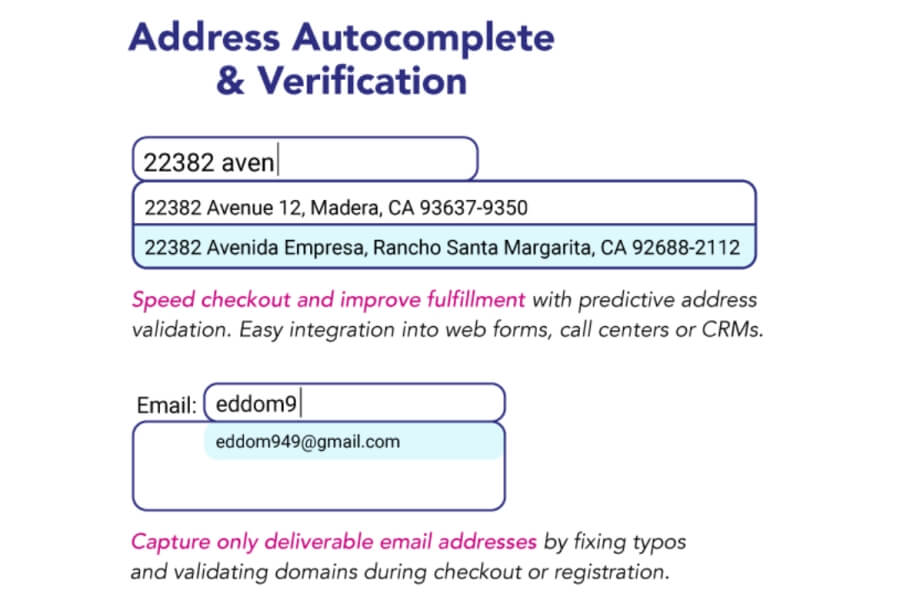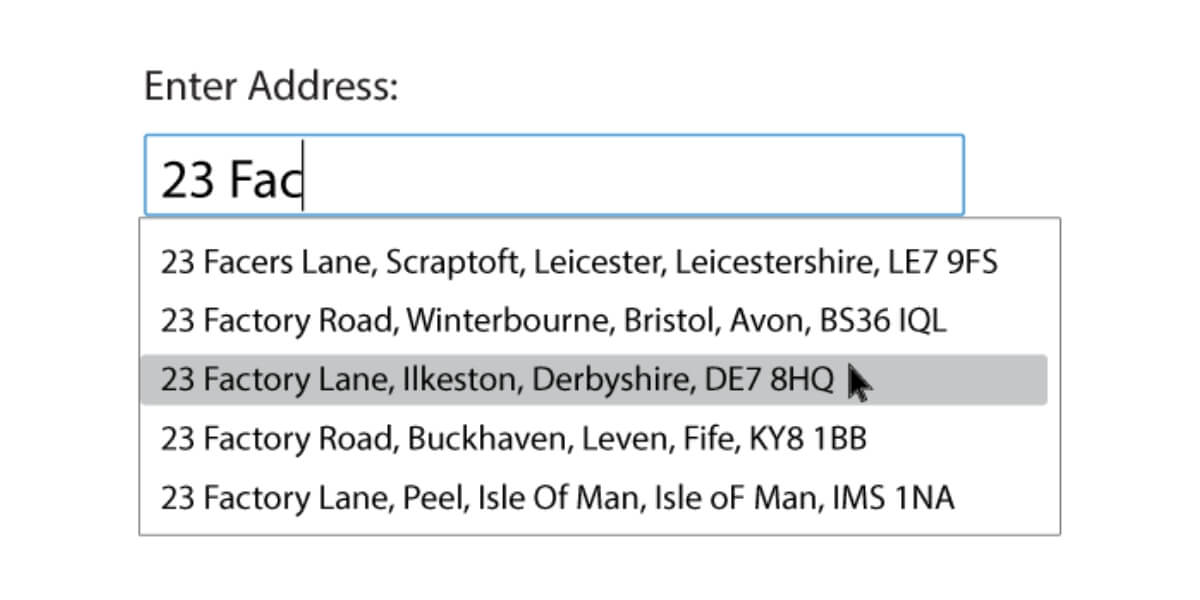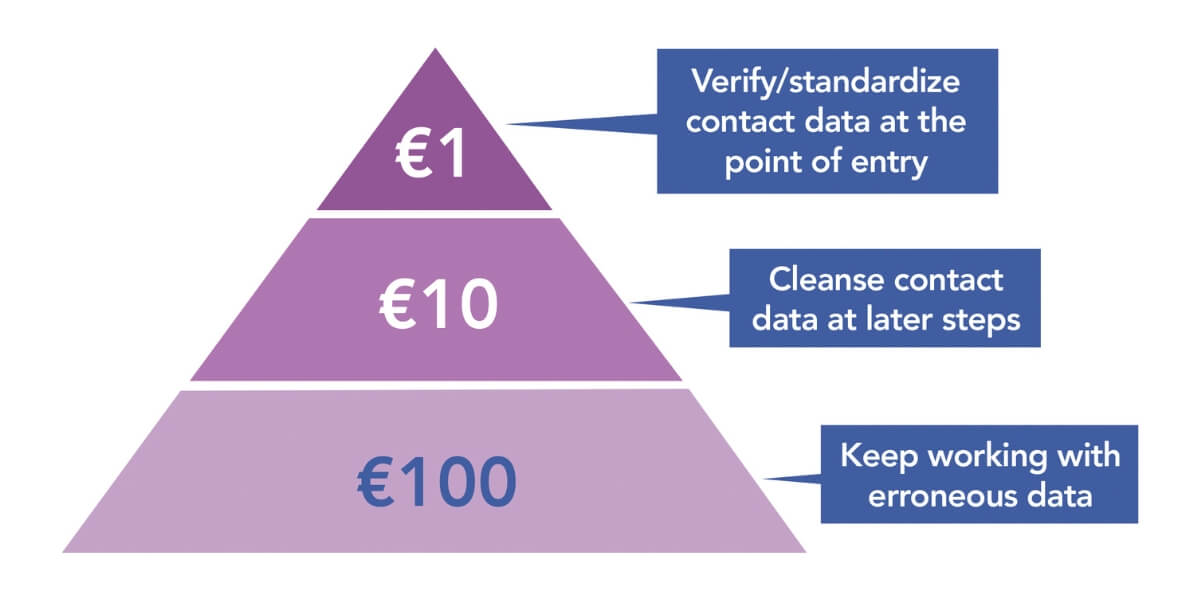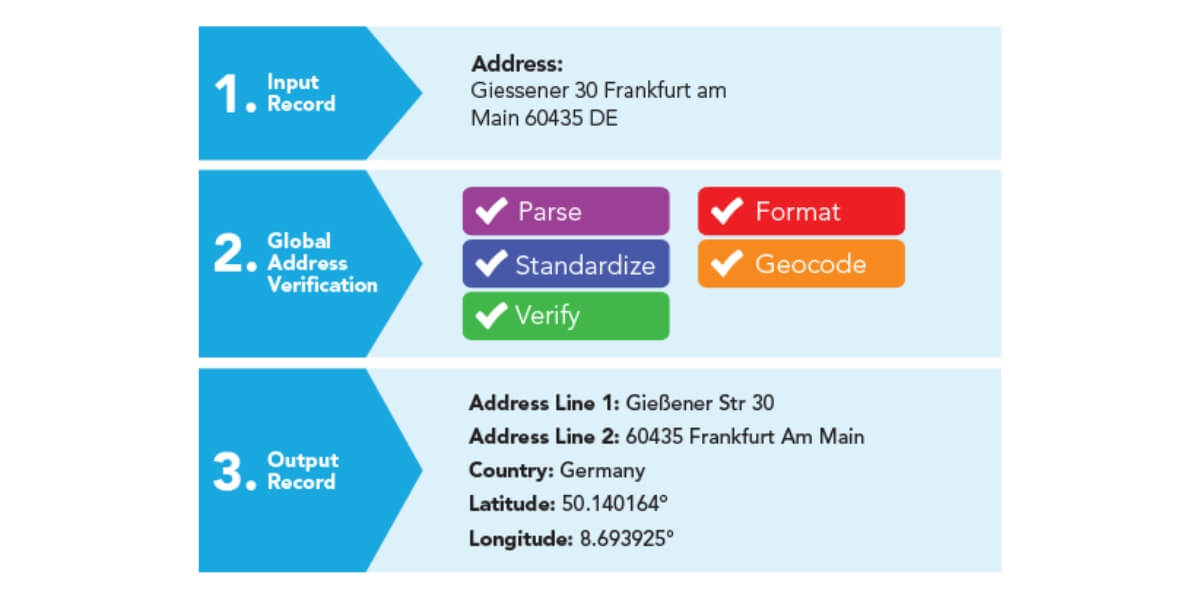Boosting competitiveness with valid customer data
Written by
Editorial TeamPublished on
Discover how accurate address management and cutting-edge technologies can transform your e-commerce business. From streamlining global operations to preventing fraud, find out why valid customer data is the cornerstone of enhancing customer satisfaction and driving competitive advantage. (Ad)

(Image Source: www.pixabay.com)
Commercial collaboration
“If you make customers unhappy in the physical world, they might each tell six friends. If you make customers unhappy on the Internet, they can each tell 6,000 friends.” This statement by Amazon founder, Jeff Bezos, about communication between customers reflects the situation of e-commerce providers all too well. They must ensure a consistently positive customer journey across all touchpoints. This starts with simple digital onboarding, continues with easy order entry and ends with on-time product delivery. If something goes wrong, such as a typo in the delivery address, and the goods cannot be delivered, the customer will not only switch to a competitor, but they are also likely to vent their frustration online in forums or social networks.
“Many challenges that e-retailers face can be boiled down to bad address data”, explains Çağdaş Gandar, Managing Director of Melissa Data GmbH. “Whether it is the delivery of goods, direct mail marketing or even fraud prevention, wrong addresses are a high-cost, no-reward expense for companies. They cause delays in deliveries, returned mail and lost customers, to name a few. This not only costs companies time, materials and postage, but it affects customer satisfaction, their customer journey and their relationship with the organisation.”
Standardise & format globally
To remain competitive in a global e-commerce landscape, businesses must recognise the importance of domestic and international address management. There are more than 100 different address formats worldwide that differ drastically from one another. Some address elements are required for certain countries while others must be omitted in different regions – not to mention the differing placement of address details.
Maintaining properly standardised and formatted global address data has numerous advantages for providers, including:
- Establishing the basis for downstream processes like change-of-address checking (NCOA), credit and identity checks, duplicate management, and the enrichment of socio-demographic characteristics.
- Potential postage-optimised shipments.
- Route coding capabilities become possible.
- Establishing a basis for (professional) master data management.
- Direct marketing campaigns return higher response rates if they reach the intended customer.
Technologically forward solutions eliminate working hours
To remain competitive, online retailers must be able to manage their customer data by using modern technologies. This is especially true with international addresses where formatting properly can be a tedious and time-consuming task for e-retailers who must correct addresses by conventional means.
As a result, the preparation, analysis and interpretation of valid customer information in real time are essential. Gaining immediate insights from a 360-degree view of correct data allows enables companies to make better business decisions to operate more economically and efficiently. Accurate data insights also support well-founded predictions and analyses, allowing businesses to implement effective measures. In short, global address validation is an extremely lucrative investment for e-commerce providers who hope to expand their business. This means that only valid addresses reach the shop or CRM system and simultaneously identify and suppress duplicate entries.

Autocomplete for higher conversions
Address autocompletion speeds customer checkout and provides businesses with only clean, deliverable address data. With predictive, type-ahead features, businesses can ensure only correctly formatted, deliverable and accurate addresses are entered into their systems directly at point-of-entry. This decreases the entry of inaccurate, incomplete or unstandardised addresses while increasing successful orders. It also eliminates employees’ working hours who would otherwise have to research or contact the customer to correct an individual address.

Cost-reduction is synonymous with good data
Investing in address quality is not only imperative for the customer experience, it also has a very real and significant effect on the bottom line. Undeliverable or late parcels are often caused by bad address data. It could be as small as a missing a flat number in a small block or as big as a customer’s previous residence. No matter the mistake, bad addresses have a deep impact on a company’s bottom line.
Consider the 1-10-100 rule which states:
- It costs an average of € 1 per record to verify at the point-of-entry with professional address verification software.
- It costs about € 10 per record if addresses are cleansed intermittently to correct, update and deduplicate records in batch.
- That cost jumps to € 100 per record if nothing is done to fix bad address data – reflecting the cost of wasted materials, poor reputation, lost customers and more.
The cost of bad addresses includes everything from checking returned goods, repackaging and even having to employ extensive time into manually searching and correcting the customer’s address, if it is even possible at this point. Only when the address has been corrected can the order once again be created and the package shipped. In other words, consignments that end up undeliverable due to an incorrect address will entail a slew of additional expenses and hours worked.

Bad addresses hinder ROI on direct mail campaigns
Wasted working hours is especially true for direct mail marketing campaigns. Consider a piece of collateral that has been developed and executed by a marketing team. Even though it may, in some cases, still reach a doorstep with a bad address, consider how that recipient could have significantly less interest in your company than if it had reached the intended customer. You missed the opportunity to engage with your intended customer.
With an address verification process you can:
- Reduce costs associated with lost or returned shipments.
- Reduce working hours involving postprocessing returns (address research, multiple orders, etc.).
- Enhance direct marketing efforts and empower opportunities for personalisation to allow cross or up-selling, increase sales opportunities and build better customer experiences post-purchase.
Fraud prevention starts with address verification
White collar crime has increased in recent years, especially as online e-commerce grows globally. One reason for this is that fraudsters are cleverly using advanced digitisation to deceive companies. Many governmental directives and watchlists have worked to mitigate money laundering, fraud and terrorist financing that all require due diligence. Merchants must therefore implement fraud prevention measures to not only meet their legal compliance obligations, but also minimise their own business risks – ideally with AML controls that align with industry standards and evolving regulations.
Compliance isn’t that complicated… It starts with the address
Know Your Customer (KYC) initiatives prevent attempts at fraud by helping companies verify the identities of domestic and international customers. With an address validation solution, fake addresses, for example, are reliably identified and filtered out in advance. “Customers” who provide an unreliable address, can then be limited to certain payment options. It is possible that they are even completely blocked from making a purchase.
With the introduction of KYC, retailers can minimise many risks in addition to complying with regulatory obligations.
KYC means e-commerce retailers can:
- Protect themselves against money laundering and malware infection.
- Eliminate customers that disrupt operations from the beginning.
- Using digital customer onboarding portal, create a simple and quick way of registering to create a better customer experience.
Address validation provides cost-effective support for fraud prevention in the initial steps of onboarding, by defining incorrect and implausible address information. The address check is therefore the very first basic step of effective protection against online fraud.
Expand globally and reach new markets
An increasing number of companies are looking to drive sales in new markets around the world. Utilising an intelligent and global address, phone, name, and email verification service expedites the ability to market and sell to a global audience. Modern solutions are made available as a web service or can be integrated directly into the web shop to run automatically in the background. With the help of such solutions, e-retailers can check, correct, transliterate, standardise and format global address data for hundreds of countries and territories worldwide.
Retailers can therefore expand into new global markets and effectively cater to international target groups. If components like postal codes, post office boxes or regions are missing from the information, global solutions will add these elements, ensuring that only complete and trusted addresses are used.

Digitisation depends on data quality
E-commerce thrives when multi-channel strategies are utilised to their fullest potential. A widespread cross-media approach has influenced companies to reach the right recipient at the right time with the right message and now, on the right channel. Accordingly, marketing measures are sensibly coordinated and linked to provide a better, more enhanced customer experience. With a cross-media approach, customers are given a wide array of options in which to engage with companies and many find that mobile e-commerce is a big player.
Digitise customer onboarding
To be efficient in customer onboarding, companies must digitise related business processes. Digital customer onboarding optimises processes and has the goal of successfully completing the customer journey from registration to checkout. This is made possible by the use and interaction of different systems, such as Online Shop, CRM, ERP and supply chain management. In e-commerce, this applies to all applications in the value chain, including payment, warehouse management, inventory management, addressing, shipping, logistics, route planning, accounting, and, if necessary, collections.
However, these applications can only work as well as the data they rely on. Therefore, the validation of electronic customer information, such as contact details and postal addresses, from the very beginning is fundamental to profitable business development.
“The fact is that valid address data is an essential prerequisite for online trading so that digital business processes can interact seamlessly”, concludes Çağdaş Gandar. “This includes the faster processing of orders and the associated timely delivery, which both contribute significantly to customer satisfaction and increase the likelihood that customers will remain loyal or grow the sales of the shop by referring others to your website.”
***


